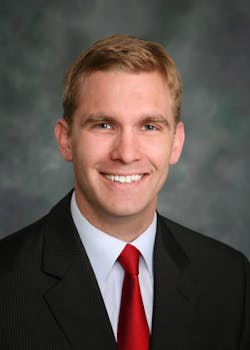ARSA Executive Director Sarah MacLeod knows how to illustrate a point.
While the strength of her statements – and ARSA’s efforts around the aviation world – is always the law, Sarah can emphasize her side with panache. If you’ve worked with her, you’ve surely experienced her never-ending list of sayings, aphorisms, and exclamations, some uniquely hers and others that carry the point. The most-common include:
“The proof of the pudding is in the eating.”
“The agency is like a bad mother.” [There are a number of things to which the government is compared.]
“The camel’s nose is in the tent.”
“You can’t be a little bit pregnant.”
“You’re supposed to be smarter than the horse!”
This last one is a favorite – employed when observing one so trapped in their own procedures, norms, ways of doing business, or viewpoint that those factors now control their work. It’s a distant, more-evocative cousin to “don’t let the tail wag the dog,” which is also a staple in ARSA’s internal and external deliberations.
What’s the “horse” in aviation? It can take many forms: the rules, business requirements, local inspector preferences, human factors, or simple day-to-day demands. In any case, when these forces begin to drive aviation professionals instead of being a mechanism through which they succeed, then the horse is in control.
How do you stay smarter? Build knowledge and awareness. Recognize how the regulatory and business world around you impact your work as well as the larger business initiatives of your company. Think critically to better manage imperatives. Read the rules, question inspectors, document everything, carefully review contracts and obligations, and put them to work for you.
All holders of airman and air agency certificates have regulatory requirements for training and knowledge development that must be upheld – we commonly call mechanic (A&P) certificates “licenses to learn.” In reality, the demand to constantly expand and improve professional knowledge stretches to every person working in an aviation business, whether they turn a wrench or answer a phone and regardless of whether they hold certificates. Everyone must understand the functions of the business, the requirements of laws and regulations, and how their work fits into the larger aviation system (the safety of which we are all responsible to protect).
Constant learning must be accomplished every minute of every day. To do it best, both individuals and organizations must supplement internal training with broader opportunities outside shop walls.
Online options have become prolific. Through webinars, online discussions, and presentations – like those offered through ARSA’s online training program – aviation professionals can access information and explore resources to improve compliance and technical knowledge while enhancing professional and business skills. You can also travel for classroom training hosted by the International Air Transport Association, the FAA, and other national regulatory bodies as well as a host of private industry stakeholders. When considering options, ensure you’ll be able to “bring your learning home” with you and continue to benefit from the investment. Participants in ARSA online sessions, for example, can attend and engage through live discussion, view on-demand recordings an unlimited number of times for 90 days, and download all materials including presentations slides, research guides, syllabi and tests.
Participating in generally available training sessions provides a useful foundation that can be supplemented with options tailored specifically for your company. By bringing an expert instructor onsite – or arranging for one to present in a private session over conference call or web sharing – aviation businesses can focus discussion on their particular needs. In order to do so, work with the training organization ahead of time, providing specific examples of repair station documents, descriptions past issues with instructors, anything that will tailor the learning experience to your specific work. Make sure that you will get full access to all training materials including any presentation slides and reference documents. (ARSA’s management firm, Obadal, Filler, MacLeod & Klein, P.L.C., offers tailored training services and the association can provide more information.)
It’s also possible to take advantage of training options associated with industry events you might already be planning to attend. Many aviation conferences and conventions have professional education tracks in addition to the general knowledge to be gained on the exhibit floor. For tastes of both, look out for ARSA’s regulatory experts at HAI’s Heli Expo in Atlanta in early March or at the association’s 2019 Annual Conference just a few days later.
By investing time and both mental and physical energy in your professional development, you give yourself tools stepping out of the flow and demands of everyday business. The knowledge is empowering … it makes you smarter than the horse!
Brett Levanto is vice president of operations of Obadal, Filler, MacLeod & Klein, P.L.C. managing firm and client communications in conjunction with regulatory and legislative policy initiatives. He provides strategic and logistical support for the Aeronautical Repair Station Association.
About the Author
Brett Levanto
Brett Levanto is vice president of operations of Obadal, Filler, MacLeod & Klein, P.L.C. managing firm and client communications in conjunction with regulatory and legislative policy initiatives. He provides strategic and logistical support for the Aeronautical Repair Station Association.

